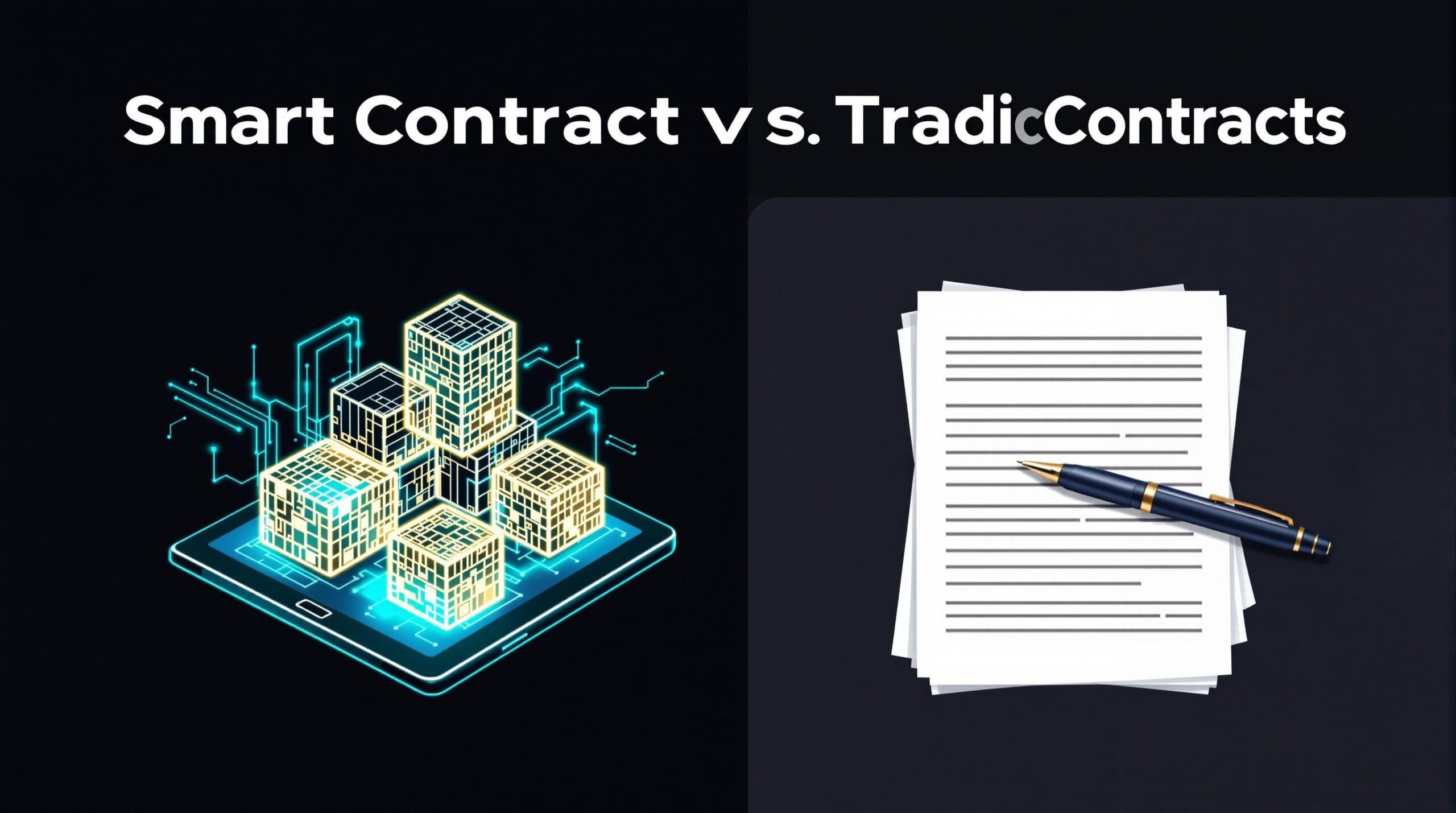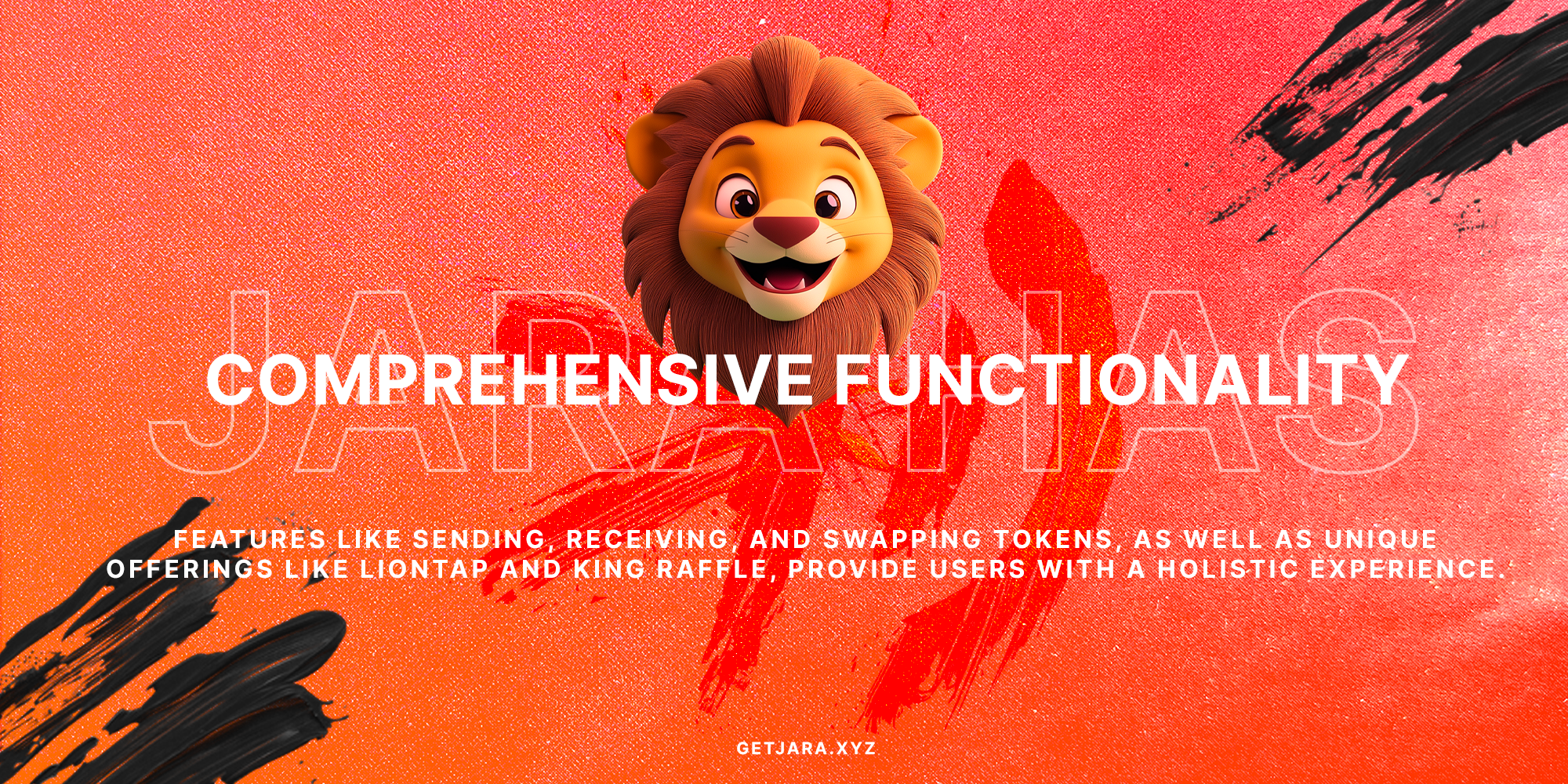Understanding Contracts: Traditional vs. Digital
Have you ever wondered what exactly a contract is and why it’s so important? At its core, a contract is a legally binding agreement between two or more parties, creating obligations that are enforceable by law. Now, contracts are everywhere—from buying a car to signing a lease, they form the backbone of countless transactions in our daily lives.
What is a contract? A contract is a legally binding agreement creating mutual obligations between two or more parties involved, supported by law.
Let’s dive deeper into the two main types of contracts we’re exploring today: traditional contracts and smart contracts. At their core, both traditional and smart contracts aim to facilitate agreements and ensure that all parties fulfill their obligations. However, they achieve this through very different means, and that’s where the exciting part kicks in!
Traditional Contracts: The Tried and Tested
Traditional contracts are the classic form that comes to mind when we think of agreements. These are typically documents written in natural language, like English, and are enforced through the legal system. Traditional contracts can take many forms, including sales agreements, employment contracts, and rental leases. In most cases, these contracts must be manually reviewed and signed by all parties involved—sometimes in the presence of a notary or legal witness.
The significance of traditional contracts lies in their legal authority, providing a framework for the enforcement of agreed terms by the jurisdiction they fall under.
Smart Contracts: The Digital Innovation
On the digital front, we have smart contracts. Introduced by computer scientist Nick Szabo in the 90s, smart contracts are self-executing contracts with the agreement’s terms written directly into code. They run on blockchain technology, best known for its use in cryptocurrencies like Bitcoin and Ethereum. The defining feature of smart contracts is their ability to self-enforce the terms once predetermined conditions are met—no human intervention required.
Smart contracts offer unparalleled advantages in automation and security, making them the backbone of modern digital agreements. Imagine being able to complete a contract without ever needing a middleman to verify it—that’s the power of blockchain!
Smart contracts are self-executing digital agreements where the terms are coded and automatically enforced on a blockchain once predetermined conditions are met.
Key Characteristics: Comparing Apples and Oranges?
- Execution Process: Traditional contracts require human verification and intervention, while smart contracts automate the process through blockchain technology.
- Security & Tamper-proof: Smart contracts on a blockchain are immutable and transparent, reducing the risks of fraud and manipulation commonly found in traditional contracts.
- Speed: Digital contracts, due to their automated nature, often execute more swiftly compared to the manual processes involved in traditional contracts.
Understanding the distinct nature of these contracts not only helps in grasping their roles but also in deciding which might better suit a given need. Whether you prefer the time-tested reliability of a traditional contract or the cutting-edge innovation of smart contracts, it’s clear they both have unique roles in our evolving world.
Ultimately, as we delve deeper into the use of contracts in a rapidly digitizing world, platforms like Jara are bridging the gap by providing robust solutions for today’s financial and digital needs. By leveraging the power of $JARA, we’re enabling users to easily engage with a thriving digital ecosystem that blends traditional and modern contract capabilities.
Advantages of Smart Contracts Over Traditional Contracts
As Africa strides toward its digital future, embracing innovative technologies like smart contracts is becoming pivotal. Smart contracts offer a suite of benefits over their traditional counterparts, fundamentally shifting how agreements are executed and enforced. But what makes smart contracts a preferred choice?
What are smart contracts? Smart contracts are self-executing contracts with the terms of the agreement directly written into lines of code, existing across a decentralized blockchain network.
Automation: Letting Technology Do the Heavy Lifting
The advent of smart contracts heralds a new era of automation in legal agreements. These contracts execute automatically when predetermined conditions are met, eliminating the need for manual intervention. This automated nature not only accelerates processes but also minimizes human error. How exactly does this help?
- Speed: When criteria are fulfilled, the contract automatically activates, ensuring prompt execution.
- Accuracy: Because they are digital, smart contracts are immune to the typical pitfalls of human interpretation and errors.
Transparency: Open Books for All Parties
Transparency remains a cornerstone of smart contracts, distinguishing them from traditional contracts significantly. Once a smart contract is on the blockchain, it becomes part of a shared ledger, accessible to all relevant parties. Why is this a game-changer?
- Visibility: All participants in the network can view the contract, fostering trust and reducing disputes.
- Immutability: The blockchain’s nature ensures once a contract is set, it cannot be altered, keeping the agreement consistent over time.
Cost Efficiency: Saving Money While Enhancing Value
Another undeniable advantage of smart contracts is their potential to reduce costs significantly. How do they manage this feat?
- Reduced Intermediaries: Traditional contracts often require multiple middlemen. Smart contracts eliminate these, reducing associated fees (source).
- Streamlined Processes: The automation and direct execution save resources and time, both of which translate into cost savings.
“Jara is building the foundational infrastructure for Africa’s digital asset economy, a market poised to exceed $200 billion.”
The transformative advantages of smart contracts pave the way for efficient, transparent, and cost-effective business processes across various industries. However, adopting this technology also involves understanding certain risks and challenges. As the infrastructure improves and expands, these challenges are gradually being addressed.

Traditional Contracts: Benefits and Limitations
Traditional contracts have long been the cornerstone of legal agreements, providing a framework for businesses and individuals to conduct transactions. But what makes them so pervasive, and why might they fall short compared to their modern counterparts like smart contracts? Let’s dive into the benefits and limitations of traditional contracts to understand this better.
Benefits of Traditional Contracts
- Legal Enforceability: Traditional contracts are recognized by courts and can be enforced under the law. This gives parties confidence that their agreements will be honored and disputes will be resolved through legal channels. Legal enforceability makes them a reliable choice for complex transactions.
- Widespread Acceptance: As they have been used for centuries, traditional contracts are universally understood and accepted across different sectors and jurisdictions. This familiarity ensures that parties can easily navigate the contract process without misunderstanding what is required of them.
- Flexibility: Traditional contracts offer flexibility in terms of negotiation and customization. Parties can tailor contract terms to suit specific needs, including clauses addressing unforeseen circumstances, something not always possible with predefined smart contract code.
- Personal Touch: Traditional contracts often involve in-person negotiations and discussions, which can build trust and foster relationships between parties. This personal interaction is crucial in scenarios where trust and human judgment are pivotal.
Limitations of Traditional Contracts
- Delays in Execution: Traditional contracts can suffer from lengthy negotiation and approval processes, causing delays. Each party’s legal team often reviews and revises contract terms, which can slow down the entire process.
- Costs Involved: Engaging third parties such as lawyers, notaries, or consultants to draft and review contracts can be costly. These additional costs may become prohibitive, especially for small businesses and startups.
- Human Error and Miscommunication: The manual nature of traditional contracts leaves room for human errors and miscommunications. Misinterpretations can lead to disputes, and errors in documentation can result in contract breaches.
- Dependency on Legal Systems: Enforcing traditional contracts typically requires intervention from legal systems, which can vary significantly across different jurisdictions. This dependency can lead to inconsistent enforcement and increased legal challenges.
The key strength of traditional contracts lies in their legal enforceability, making them a stalwart choice for diverse sectors despite potential delays and costs.
Despite the limitations, traditional contracts remain a staple in legal practices. Those entering contractual relationships in Africa, a region undergoing rapid digital transformation, might find traditional contracts aligning well with infrastructural and regulatory frameworks in place.
However, as digital solutions like those offered by Jara, an innovative platform focusing on tokenizing African assets, become more prevalent, the landscape of contractual agreements is bound to evolve. For those engaged in exploring the new possibilities of the African market, understanding both smart and traditional contracts becomes indispensable—each possessing unique advantages that might complement the other.
Comparative Analysis: Smart Contracts vs. Traditional Contracts
In today’s rapidly evolving digital landscape, there’s much buzz around the distinct differences between smart contracts and traditional contracts. Both play significant roles in the legal and business world, but how do they stack up against each other? From cost efficiency to trust mechanisms, the strengths and limitations of each are pivotal in various scenarios.
Understanding the Core Differences
So, what sets smart contracts apart from traditional contracts? A traditional contract is essentially a legally binding document, often fleshed out in intricate detail and usually requiring human oversight for execution and enforcement. In contrast, a smart contract is a self-executing set of protocols based on blockchain technology that automates and verifies transactions without needing third-party intervention.
What is a smart contract? A smart contract is a self-executing contract with the terms of the agreement directly written into lines of code on a blockchain.
Where Do Smart Contracts Excel?
Smart contracts shine in environments demanding speed, transparency, and immutability. For instance, they are invaluable in supply chain management, where real-time tracking and automated processes eliminate the need for constant manual checks. Additionally, they offer considerable cost-saving advantages by eliminating intermediaries and reducing the risks of human error.
- Automation: With predefined actions, smart contracts automatically execute tasks once certain conditions are met, minimizing the need for manual intervention and thereby cutting down processing time.
- Security: Stored on a blockchain, they are resistant to fraud and alteration, offering a secure way to handle transactions. Their encrypted nature makes hacking considerably difficult.
- Efficiency: By circumventing third-party intermediaries, transactions are completed faster and more economically, leading to enhanced productivity and less operational friction.
“Jara- Unlocking the Future to Africa’s Crypto Ecosystem through smart contracts.” This seamless connectivity enhances trust and efficiency in digitally transacting environments.
When Do Traditional Contracts Hold Ground?
Despite the advantages of smart contracts, traditional contracts still have their place, especially in complex legal scenarios. They remain the go-to for circumstances where human discretion and detailed negotiation are essential. Traditional contracts often accompany large-scale business deals or personal agreements where legal language and human oversight are pivotal.
- Flexibility: Changes and negotiations can be easily accommodated within traditional contracts, offering flexibility for unforeseen circumstances or evolving agreements.
- Detailed Obligations: Precise language allows for comprehensive documentation of obligations and legal nuances, crucial when clarity and comprehensiveness are required.
- Enforceability: These contracts are tried-and-tested methods that offer assurance through existing legal frameworks and jurisdictions, ensuring enforceability and recognition globally.
The Coexistence of Smart and Traditional Contracts
The future of contracts likely involves a hybrid approach, capitalizing on the strengths of both smart and traditional contracts. Combining digital efficiency with the flexibility of human negotiation creates a balanced framework capable of tackling diverse needs. This hybrid model is particularly promising in dynamic markets like Africa, where the focus on financial inclusion and digital transformation is paramount.
For instance, the integration of automated features into traditional frameworks is expected to simplify processes such as contract management and dispute resolution, enhancing transparency and reducing costs.
Smart contracts and traditional contracts are not adversaries but complementary tools. Strategic deployment can create more efficient frameworks that leverage technology while respecting established legal traditions.
Future Business Practices and Legal Frameworks
As blockchain adoption increases, we can expect smart contracts to become more prevalent in diverse areas such as real estate, insurance, and beyond. Legal frameworks are gradually evolving to accommodate these technological advancements, ensuring smart contracts are not only practically viable but legally functional as well. Meanwhile, traditional contracts will continue to hold value for their intricate negotiation capabilities and enforceability.
Ultimately, both smart contracts and traditional contracts have their distinct places in the evolving world of contracts. Leveraging their strengths in appropriate scenarios can drive innovation forward, offering significant benefits in terms of cost, efficiency, and reliability.

Are smart contracts more secure than traditional contracts?
Smart contracts are often considered more secure than traditional contracts because they are stored and executed on a blockchain which is inherently secure and immutable. However, this security can be compromised by poorly written code or vulnerabilities within the contract itself.
- Data Integrity: Smart contracts benefit from blockchain’s immutability, ensuring that once deployed, the contract cannot be altered without consensus.
- Security Risks: Despite potential, smart contracts must be carefully coded to prevent exploits, such as reentrancy attacks.
For more information on smart contracts’ role in enhancing fraud prevention in financial transactions, visit our detailed guide.
How do legal enforceability of smart contracts and traditional contracts compare?
Legal enforceability differs between smart contracts and traditional contracts. Traditional contracts are enforced by legal systems based on their written terms, whereas smart contracts are automatically executed by blockchain protocols but may lack clear legal enforceability in some jurisdictions.
- Traditional Contracts: These are enforceable through litigation if breached, reliant on human interpretation.
- Smart Contracts: Execution is automatic; however, legal systems are still catching up with providing frameworks for enforcement if disputes arise.
To explore how smart contracts potentially replace traditional legal enforcement, read about their implications on legal tech.
Can smart contracts handle complex agreements like traditional contracts?
Smart contracts are best for straightforward agreements and automating simpler tasks. Complex agreements, requiring nuanced stipulations or human judgment, are typically better suited for traditional contracts.
- Simple Automation: Smart contracts excel in repetitive or conditional tasks with clear executable criteria.
- Complexities: Traditional contracts remain necessary where nuances require legal interpretations or negotiations.
Discover industries that benefit most from smart contracts by visiting this exploration.
What challenges exist with implementing smart contracts compared to traditional contracts?
Implementing smart contracts presents challenges such as technical complexities, the need for coding expertise, and lack of legal frameworks. Conversely, traditional contracts require more manual oversight and paper trails but are supported by established legal practices.
- Technical Expertise: Writing and deploying smart contracts require a strong grasp of coding and blockchain technology.
- Legal Ambiguity: As legal recognition for smart contracts is still developing globally, there can be uncertainty in enforcement.
Learn more about the pros and cons of smart contract implementation.

Related Practice Areas
Explore additional practice areas related to Smart Contracts and Traditional Contracts:
Hear From Our Satisfied Clients
For us, commitment isn’t just a word; it’s our action plan. We channel this into vigorous work on every case, and the glowing reviews we receive are a gratifying sign of our successful client relationships.

Transform Your Business with Smart Contracts
As our digital world continues to evolve, ensuring your business contracts are innovative and efficient can set you apart from the competition. At Jara, we understand the complexities of transitioning from traditional to smart contracts, and we’re here to make that process seamless for you.
Experience the difference between traditional and cutting-edge digital agreements with Jara. Contact us today and see how our expertise can save you time and money while enhancing transparency and security.
Download the Jara app on Android or the iPhone app to explore how we can tailor our solutions to suit your business needs. Transform your contracts and secure peace of mind with Jara’s expert guidance in smart contract automation.
Smart Contracts vs. Traditional Contracts: What’s the Difference?
“In the dynamic world of contracts, the choice between smart contracts and traditional contracts could redefine your business approach.”
Understanding Smart Contracts
Smart contracts are self-executing contracts with the terms of the agreement written into lines of code. They offer automation and do not require intermediaries.
- Automation: Transactions occur automatically once conditions are met.
- Security: Uses blockchain technology, making it tamper-proof and secure.
- Efficiency: Reduces the time and cost associated with contract management.
Exploring Traditional Contracts
Traditional contracts involve agreements written in text form and are usually managed by legal professionals.
- Flexibility: Can be tailored to unique and complex agreements.
- Enforcement: Relies on legal systems for enforcement and dispute resolution.
- Human Element: Negotiated and adjusted through human interaction.
Key Differences
| Aspect | Smart Contracts | Traditional Contracts |
|---|---|---|
| Execution | Automatic | Manual |
| Intermediaries | None | Required |
| Modification | Limited | High flexibility |
When to Use Smart Contracts?
Consider smart contracts if you need automation, less human intervention, and enhanced security through blockchain.
When to Opt for Traditional Contracts?
Choose traditional contracts when you need flexibility, human negotiation, and comprehensive legal oversight.

















